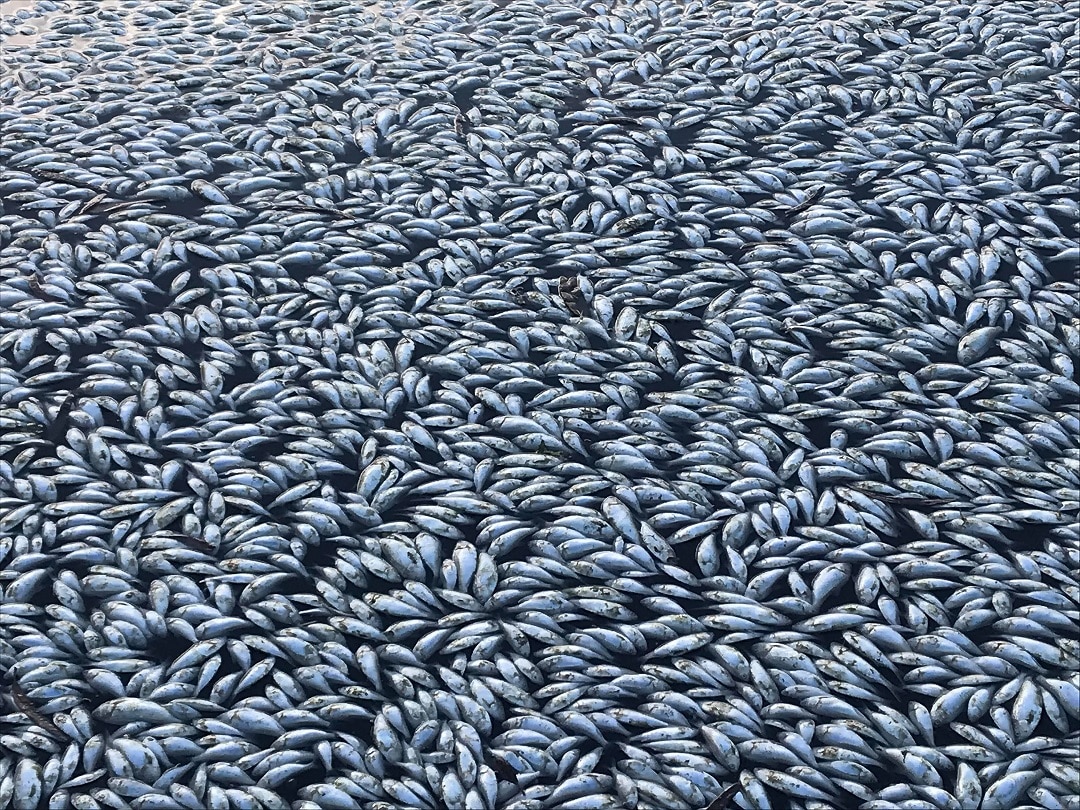The Commissioner’s report paints a damning picture of how, for years, successive governments and administrators failed to take notice of the scientific consensus about sustainable levels of water harvesting from the Murray Darling Basin. Martin Hirst reports on the extraordinarily damning findings of the Murray Darling Royal Commission.
The South Australian Royal Commission into mismanagement of the Murray Darling Basin has accused federal and NSW ministers and administrators of “gross negligence” and failure to follow the advice of scientists in their handling of Australia’s largest inland river system.
Royal Commissioner, Bret Walker SC, says that from his investigation it is clear the Murray Darling Basin Authority (MDBA) and relevant federal and state ministers have not always taken note of the best available scientific knowledge when making decisions about environmental water flows.
Walker’s report also slams the MDBA for a history of “grossly inadequate disclosure, explanation and consultation” in the handling of its responsibilities under the Water Act (2007) which governs how water is allocated to irrigation or environmental flows.
Evidence presented to the Commission from several witnesses underscores the problems with a mechanism for managing environmental water flows, that are critical for the health of river systems and sustaining biodiversity, when the eastern states and the federal government all had a stake in conflicting outcomes.
Science and environment, unfortunately, play second fiddle to economic and political realities. In such situations compromise is often necessary but, as Bret Walker points out, the “negotiated policy position” that was the outcome of horse trading between state and federal administrations “did not accord with the law” as expressed in the legislated requirements of the Water Act. In fact, evidence before the Royal Commission pointed to a “gross failure by the MDBA to accord with the requirements of the Water Act” (p.217).
Scientific consensus ignored for many years
The Commissioner’s report paints a damning picture of how, for years, successive governments and administrators failed to take notice of the scientific consensus about sustainable levels of water harvesting from the Murray Darling Basin. The MDBA was supposed to operate what is euphemistically referred to as and “environmentally sustainable level of take” (ESLT) based on a 2011 review. Scientists warned that the 2011 plan was flawed and that it did not meet the standards required in the Water Act. Further, the Walker report notes that modelling by the MDBA failed to take into account the effects of climate change on what was “sustainable” in terms of taking water from the system for commercial reasons. The failure is systemic and historically traceable, at least as far back as 2009.
According to Bret Walker SC it shows that the MDBA had a “head in the sand approach” to “the certainty” of climate change, and is further evidence of the Authority’s “gross negligence” in relation to sustainable diversion limits (SDL).
It amounts to gross negligence. Gross, because the MDBA ignored the obviously sound advice they were given by the CSIRO in 2009 to incorporate climate change projections into its modelling for the determination of the ESLT and hence the Basin-wide SDL.
Bret Walker SC, MDBA Royal Commission Report, p.247
The Northern Basin Review – a hotspot of potentially illegal activity
Commissioner Walker cites the MDBA’s handling of the Northern Basin Review (NBR)as an example of “gross maladministration” and as demonstrating that the Authority “has shown itself unwilling and incapable of fulfilling [its] statutory functions and obligations” (p.62).
The NBR report of November 2016 was supposed to address issues of “water recovery” in the northern aspects of the catchment in NSW.
The Commission reports that the MDBA kept important data about the social, environmental and economic factors in its decision-making secret and that the Northern Basin Review ignored best practice scientific data. The NBR resulted in the MDBA lowering the environmental release in the region by 70 gigalitres. To put that in perspective here’s that number with the right amount of zeros: 70,000,000,000 litres. Or, if that’s not clear enough 70 billion litres.
Bret Walker is scathing in his assessment of the illegality and unethical nature of such actions.
There is no scientific, intelligible or rational justification put forward for the reduction of 70 GL. The obvious inference to be drawn is that political considerations largely drove the NBR, not science. This is not only unlawful, but is deplorable.
Bret Walker SC, MDBA Royal Commission Report, p.63
When you get your head around that number it is no surprise that fish are dying, the rivers are dying, and regional communities are running out of potable water. This becomes a shocking crime when, as Walker points out, it is deliberately shielded from “proper scrutiny” by the responsible government agency.
It is likely that had the NBR not resulted in what the Commissioner argues was an “unlawful” and scientifically-flawed report more water, not less, would have been reserved for environmental flows. Perhaps the carp and perch of Menindee died in vain.
NSW Government cops it from Royal Commissioner too
It’s not just the federal government and officials who are excoriated in Bret Walker’s report. He has lashed NSW Government Minister Niall Blair over media comments in the wake of the Menindee fish kill event a few weeks ago.
The implied position of the New South Wales Government revealed by this crude language is presumably meant to menace the continued co-operative national endeavour to save the Basin from irreparable degradation. It amounts to saying that New South Wales will do what it can to destroy the Plan if this particular highly problematic project is not guaranteed, in advance, to contribute to a reduction in environmental flows and a commensurate increase in irrigation take.
Bret Walker SC, MDBA Royal Commission Report, p.30
Perhaps this is to be expected; after all, it is the South Australian government who set the terms of reference and which is footing the bill for the Royal Commission. However, it’s worth noting that Niall Blair has conflicting interests as a minister. His responsibilities as Minister for Primary Industries could well be perceived to contradict his responsibilities as Minister for Regional Water.
Key Recommendations
Bret Walker SC has made several recommendations in relation to his findings of misconduct and negligence on behalf of the MDBA. Key to fixing the mess his report has highlighted is that the Authority must act lawfully and in accord with the Water Act 2007. His report has made it clear that he does not think the MDBA has been doing this. The proposed changes – which can only be enacted with the agreement of all parties – would ensure that protecting the basin and its fragile ecosystems would be the priority, not a false equivalence of so-called triple bottom line accounting in which the environment is a distant third to profitability.
This recommendation also restores proper regard to the scientific evidence to its proper place in any discussion of sustainable levels of “take” from the river system.
Importantly, the Commissioner’s recommendations include a full assessment of the impact of climate change on the basin and future risks associated with global warming. Walker has also suggested that full disclosure and public accountability be central to the governance of the MDBA and all policy making around the river system.
It is also worth noting that Recommendation 13 is that approval to continue taking 70 billion litres from the Northern Basin should be immediately revoked. We should also acknowledge that the Commissioner has noted the need for the rights of the First Nations traditional owners to be expressly considered in the Water Act.
Bret Walker’s report is a timely reminder of the fragility of water-dependent ecosystems on the driest continent. It is refreshing to see the incompetence and potentially corrupt practices of governments called out in this way.
No doubt both the federal and NSW governments will push back against the Royal Commission’s findings and recommendations. The blame-shifting and politicking will now commence but the science is hard to dispute.
 Dr Martin Hirst is a veteran journalist, writer and independent scholar. In a media career spanning 40 years, Martin has written millions of words. His most recent book, Navigating Social Journalism, was published by Routledge, New York, in October 2018.
Dr Martin Hirst is a veteran journalist, writer and independent scholar. In a media career spanning 40 years, Martin has written millions of words. His most recent book, Navigating Social Journalism, was published by Routledge, New York, in October 2018.
You can follow Martin on Twitter @ethicalmartini and support his investigative journalism via Martin Hirst on Patreon.
Kremlin critic Browder: dangerous to deport Australian-based whistleblower
Public support is vital so this website can continue to fund investigations and publish stories which speak truth to power. Please subscribe for the free newsletter, share stories on social media and, if you can afford it, tip in $5 a month.
Dr Martin Hirst is a veteran journalist, writer and independent scholar. In a career spanning 40 years in the media, Martin has written millions of words in news stories, magazine features, radio documentaries, academic articles, blogs and books. His most recent book, Navigating Social Journalism, was published by Routledge, New York, in October 2018.

